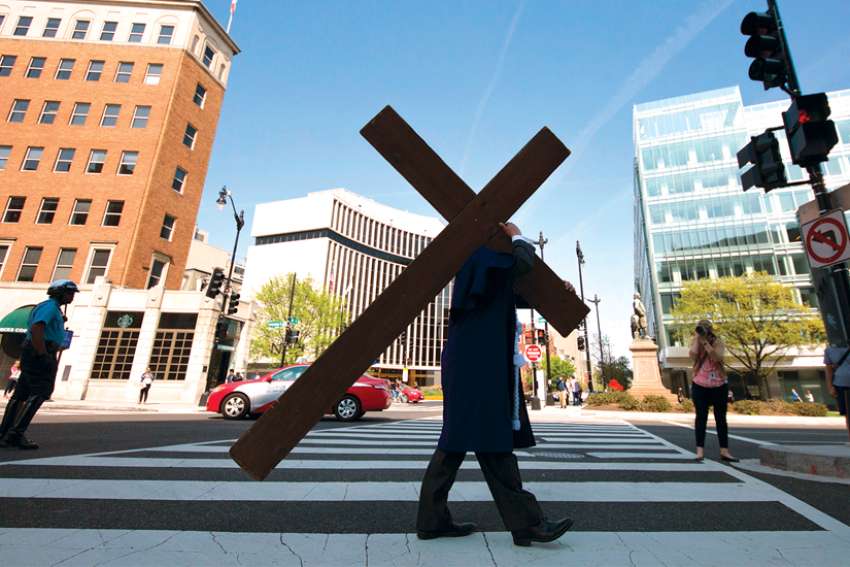To me, it does not really matter whether we slip. The thing is we are aware that these promises are important and have not shrugged off any backsliding. We pick ourselves up and try again.
The real test is being conscious of the season we are in and why it is important to regroup when momentary weakness gets in the way.
But imagine making Lenten promises throughout the year. Or at the very least, being as conscious of what this season signifies each day. Does that sound difficult? A burden? Or is it just the way our faith tells us to be?
This is the point of one of my favourite spiritual books, Death on a Friday Afternoon, by the late Fr. Richard Neuhaus. I read it every Lent but I have also read it whenever I feel I need a re-awakening of my faith.
I bought this book years ago in Ottawa while visiting family. I was not yet a Catholic but I was moving in that direction.
I still remember reading it and being excited and in awe of the crystalline writing and the message of the cross that Fr. Neuhaus so beautifully related.
From the first page of the preface, I knew I was in the hands of a great writer. I was hooked: “Every day of the year is a good day to think more deeply about Good Friday, for Good Friday is the drama of the love by which our every day is sustained.”
Neuhaus built this book on the seven last words of Jesus from the Cross. They are not exactly words but phrases as reported in the four Gospels:
- “Father, forgive them, for they know not what they do.”
- “Woman behold your son. Son behold your mother.”
- “It is finished.”
- “I thirst.”
- “Father, into your hands I commend My spirit.”
- “Truly, I say to you, today you will be with Me in paradise.”
- “My God my God, why have you forsaken me?”
I read the book in the fall in the guest room where I was staying. It was grey and wet and cold outside. I was glad of it. It gave me an excuse to not leave the house and keep focused on what I was reading.
His message was summed up neatly in this one beautiful line: “This is the axis mundi, the centre upon which the cosmos turns.”
For the first time I understood the shape of the cross was not just a coincidence; it was not simply an instrument of torture and killing invented by the Romans.
Like Jesus’ arms and the cross itself reach out eternally above and below, connecting Heaven and Earth, and to the right and to the left, uniting the world in a single act of sacrifice made for the salvation of the world.
The fact that Jesus had His arms wide open has always been to me a sign of His love for us. It is a gesture of welcome through the incredible pain of crucifixion.
“This book does not claim to explain what happened on Good Friday,” Neuhaus writes. “That would be unspeakably presumptuous. It does invite the reader to explore the meaning that people have found in the crucifixion of Christ. It is an exploration into the meaning of suffering, of justice, of loss, of death and whatever hope my be on the far side of death.”
To which Neuhaus urges not to think about this just at a certain time of the year. He also urges us not to rush to Easter so as to get Lent over with.
Our faith is not seasonal nor is Christ’s suffering for our sake just a simple anniversary.
The Catechism of the Catholic Church tells us that the entire point of doctrine “must be directed to the love that never ends” and that our “Lord must always be made accessible, so that anyone can see all the works of perfect Christian virtue spring from love and have no other objective than to arrive at love.”
It is constant of our lives, the shadow that follows us always. Lent teaches us what should be our focus all year: the cross, its victory over death, the means of our salvation and a love without equal.
(Lewis is a Toronto writer and regular contributor to The Register.)


